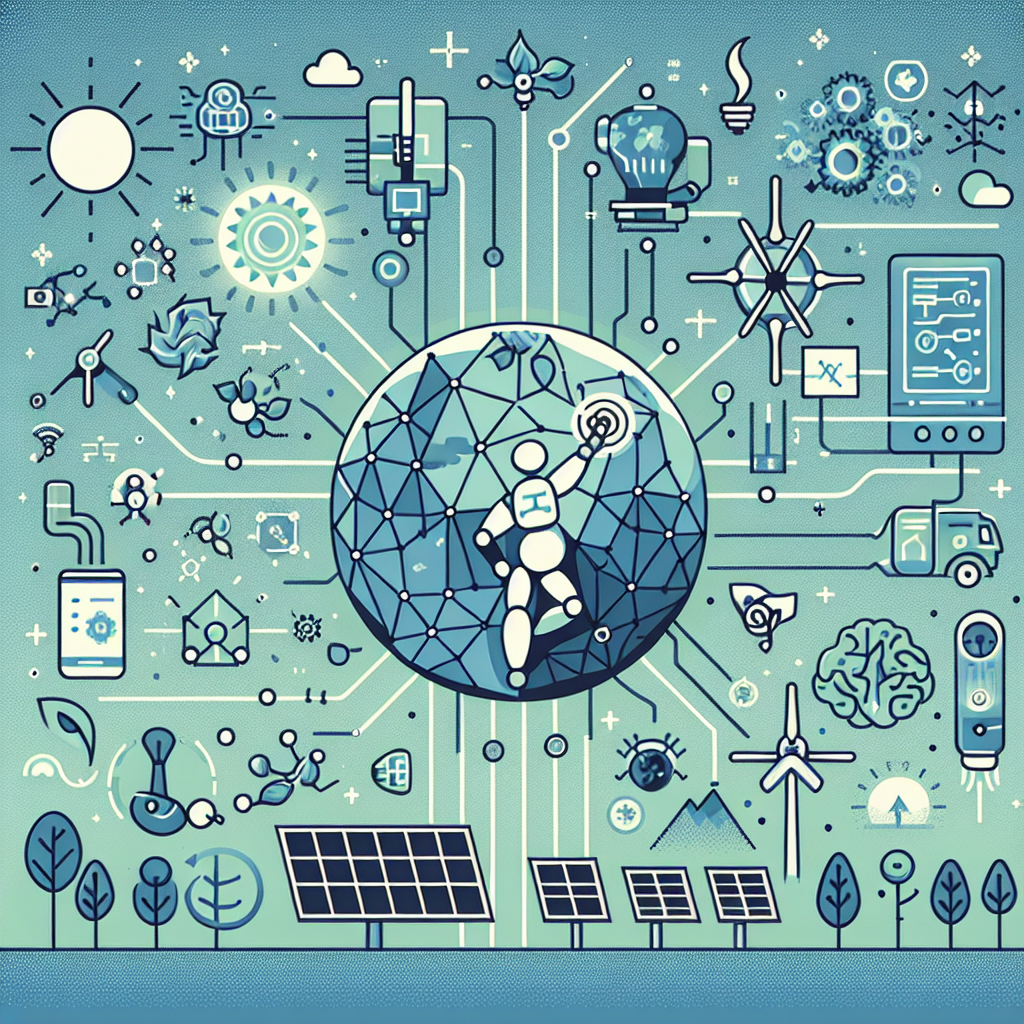Artificial intelligence (AI) has been hailed as a revolutionary technology with the potential to transform nearly every industry, and its impact on climate change mitigation is no exception. AI has the ability to analyze vast amounts of data, identify patterns, and make predictions that can help in the fight against global warming. From optimizing energy consumption to improving weather forecasting, AI has the potential to play a crucial role in mitigating the effects of climate change.
One of the key ways that AI can help in climate change mitigation is by optimizing energy consumption. AI algorithms can analyze data from smart meters, sensors, and other sources to identify patterns in energy usage and recommend ways to reduce waste. By optimizing energy consumption, AI can help reduce greenhouse gas emissions and lower overall energy costs. For example, AI can help businesses and individuals track their energy usage in real-time and make adjustments to reduce waste.
AI can also help in the development of renewable energy sources. By analyzing data on weather patterns, energy demand, and other factors, AI can predict when and where renewable energy sources such as solar and wind will be most effective. This can help increase the efficiency of renewable energy production and reduce the reliance on fossil fuels. In addition, AI can help optimize the placement of renewable energy infrastructure, such as solar panels and wind turbines, to maximize their effectiveness.
Another way that AI can help in climate change mitigation is by improving weather forecasting. AI algorithms can analyze vast amounts of data from satellites, weather stations, and other sources to make more accurate predictions about weather patterns and extreme events. This can help communities better prepare for and respond to natural disasters such as hurricanes, floods, and wildfires, which are becoming more frequent and severe due to climate change.
AI can also help in the monitoring and management of natural resources. By analyzing satellite imagery and other data sources, AI can track deforestation, illegal logging, and other activities that contribute to climate change. This information can help governments and organizations take action to protect forests, oceans, and other ecosystems that are vital for mitigating the effects of climate change.
In addition, AI can help in the development of climate change adaptation strategies. By analyzing data on climate trends, AI algorithms can help identify areas that are most vulnerable to the effects of climate change and recommend ways to mitigate these risks. This can help governments, businesses, and communities better prepare for the impacts of climate change, such as rising sea levels, extreme weather events, and food and water shortages.
Despite its potential benefits, AI also poses challenges in the fight against climate change. One of the key challenges is the energy consumption of AI itself. Training AI models requires vast amounts of computing power, which can contribute to greenhouse gas emissions. However, researchers are working on developing more energy-efficient AI algorithms and hardware to reduce the environmental impact of AI.
Another challenge is the potential for AI to exacerbate existing inequalities. AI algorithms can reflect the biases and assumptions of their creators, leading to unfair or discriminatory outcomes. This can have negative impacts on vulnerable communities that are already disproportionately affected by climate change. It is important for developers and policymakers to address these issues and ensure that AI is used ethically and responsibly in the fight against climate change.
In conclusion, AI has the potential to play a crucial role in mitigating the effects of climate change. From optimizing energy consumption to improving weather forecasting, AI can help in the development of renewable energy sources, monitoring and managing natural resources, and developing climate change adaptation strategies. However, it is important to address challenges such as the energy consumption of AI and the potential for AI to exacerbate inequalities. By leveraging the power of AI in a responsible and ethical manner, we can work towards a more sustainable future for our planet.
FAQs
1. How can AI help in reducing greenhouse gas emissions?
AI can help in reducing greenhouse gas emissions by optimizing energy consumption, developing renewable energy sources, improving weather forecasting, monitoring and managing natural resources, and developing climate change adaptation strategies.
2. What are the challenges of using AI in the fight against climate change?
Some of the challenges of using AI in the fight against climate change include the energy consumption of AI itself, the potential for AI to exacerbate existing inequalities, and the need to address biases and assumptions in AI algorithms.
3. How can AI be used to improve weather forecasting?
AI algorithms can analyze vast amounts of data from satellites, weather stations, and other sources to make more accurate predictions about weather patterns and extreme events. This can help communities better prepare for and respond to natural disasters.
4. How can AI help in the development of renewable energy sources?
AI can help in the development of renewable energy sources by analyzing data on weather patterns, energy demand, and other factors to predict when and where renewable energy sources will be most effective. This can help increase the efficiency of renewable energy production and reduce the reliance on fossil fuels.

